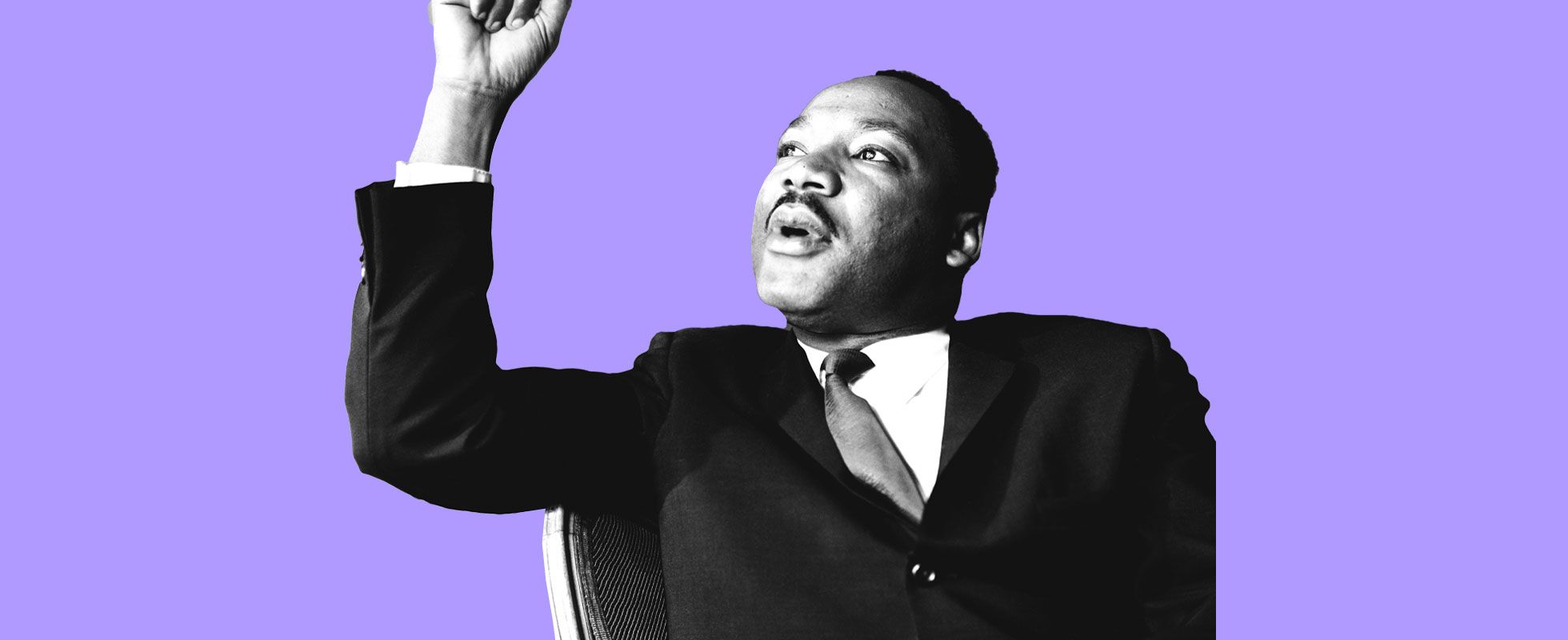Speeches have the power to define a moment or rouse people to action, and some are so powerful, they echo through the ages, inspiring us to this day. These 10 speeches are some of the most famous — and quoted — in history, uttered in the face of war, injustice, or looking forward toward a better future.
Franklin D. Roosevelt’s “Day of Infamy” Speech
Yesterday, December 7, 1941, a date which will live in infamy…Franklin D. Roosevelt
In the early hours of December 7, 1941, the empire of Japan launched an attack on Pearl Harbor, Hawaii. The following day, Franklin D. Roosevelt stood before Congress and gave one of the most consequential speeches in U.S. history. The President asked the legislative body to declare war on Japan, marking America’s entry into World War II.
Abraham Lincoln’s “Gettysburg Address”
Four score and seven years ago our fathers brought forth on this continent, a new nation, conceived in Liberty, and dedicated to the proposition that all men are created equal.Abraham Lincoln
When the cannons finally fell silent on July 3, 1863, more than 7,000 Union and Confederate soldiers had lost their lives in Gettysburg, Pennsylvania, in one of the most pivotal battles of the American Civil War. Five months later, at what is now Gettysburg National Cemetery, President Abraham Lincoln delivered a 271-word address that became one of the most famous speeches in history, helping to heal the nation while reaffirming its resolve for unity.
Martin Luther King Jr.’s “I Have a Dream” Speech
I have a dream that my four little children will one day live in a nation where they will not be judged by the color of their skin but by the content of their character.Martin Luther King Jr.
On August 28, 1963, at the height of the civil rights movement, some 250,000 people gathered for the March on Washington for Jobs and Freedom. The event brought together some of the era’s most prominent leaders, chief among them Martin Luther King Jr. In the shadow of the Lincoln Memorial, the Georgia minister delivered the most pivotal speech of the movement, outlining his dream for a more equal nation.
Sojourner Truth’s “Ain’t I a Woman?”
I have borne 13 children, and seen most all sold off to slavery, and when I cried out with my mother's grief, none but Jesus heard me! And ain't I a woman?Sojourner Truth
Sojourner Truth’s “Ain’t I a Woman?” speech was delivered at the Women’s Convention in Akron, Ohio, in 1851. Born into slavery in 1797, Truth gained her freedom in 1827 and became a powerful orator and a prominent voice for Black women’s rights. In this short speech, Truth’s message rings clear: Black women should be part of the American woman’s quest for equal rights.
Winston Churchill’s “We Shall Fight on the Beaches” Speech
We shall fight on the beaches, we shall fight on the landing grounds, we shall fight in the fields and in the streets, we shall fight in the hills; we shall never surrender.Winston Churchill
British Prime Minister Winston Churchill’s “We Shall Fight on the Beaches” speech on June 4, 1940, arrived at a pivotal moment during World War II. Just a few weeks after his famous resolve to fight at all cost, France surrendered to Germany and a relentless German Luftwaffe air campaign battered the British Isles. Churchill’s words provided steely resolve just when Britain needed it the most.
John F. Kennedy’s Inaugural Address
And so, my fellow Americans: Ask not what your country can do for you — ask what you can do for your country.John F. Kennedy
On January 20, 1961, President John F. Kennedy delivered one of the most consequential inaugural addresses in recent memory. His words prepared the United States for the Cold War ahead, outlining a determination that was soon tested by the Cuban Missile Crisis and culminated in Americans walking on the moon by the decade’s end.
Frederick Douglass’ “What to the Slave Is the Fourth of July”
What, to the American slave, is your Fourth of July? I answer; a day that reveals to him, more than all other days in the year, the gross injustice and cruelty to which he is the constant victim.Frederick Douglass
The day after the United States celebrated its independence, one of the nation’s staunchest abolitionists questioned the very morality of such jubilation. On July 5, 1852, Frederick Douglass, a formerly enslaved person turned social reformer and statesman, delivered this famous speech to the Rochester Ladies' Anti-Slavery Society in Rochester, New York. Today it stands as withering criticism of the hypocrisy of America’s founding.
Harvey Milk’s “Hope Speech”
The only thing they have to look forward to is hope. And you have to give them hope.Harvey Milk
One of the first openly gay politicians in the U.S., Harvey Milk fought for LGBTQ+ rights in his hometown of San Francisco and throughout the country. On June 25, 1978, Milk gave his famous “Hope” speech on the steps of city hall during a rally for California Gay Freedom Day. The speech “ignited the crowd,” according to the San Francisco Examiner, as Milk tied his quest for equality to an indelible message of hope.
Nelson Mandela’s “I Am Prepared to Die” Speech
I have cherished the ideal of a democratic and free society in which all persons live together in harmony and with equal opportunities. It is an ideal which I hope to live for and to achieve. But if needs be, it is an ideal for which I am prepared to die.Nelson Mandela
On April 20, 1964, civil rights leader Nelson Mandela gave a three-hour speech as a defendant on trial. Although Mandela was convicted and imprisoned, the speech confirmed the leader’s unwavering opposition to South Africa’s racist apartheid system, and is now seen as a defining moment for democracy in South Africa and throughout the world.
Elizabeth I’s “Speech to the Troops at Tilbury”
I know I have the body but of a weak, feeble woman; but I have the heart and stomach of a king, and of a king of England too.Elizabeth I
In 1588, England was at war with Spain, whose naval fleet was feared throughout Europe. Queen Elizabeth I traveled to Tilbury in Essex to speak to the English troops who faced the indomitable Spanish Armada. Elizabeth’s words galvanized the kingdom’s resistance to the invading force. The Spanish were eventually defeated by the English, solidifying the island kingdom as a major power, and Elizabeth as its equally powerful monarch.
Photo credit: Reg Lancaster/ Daily Express/ Hulton Archive via Getty Images
















